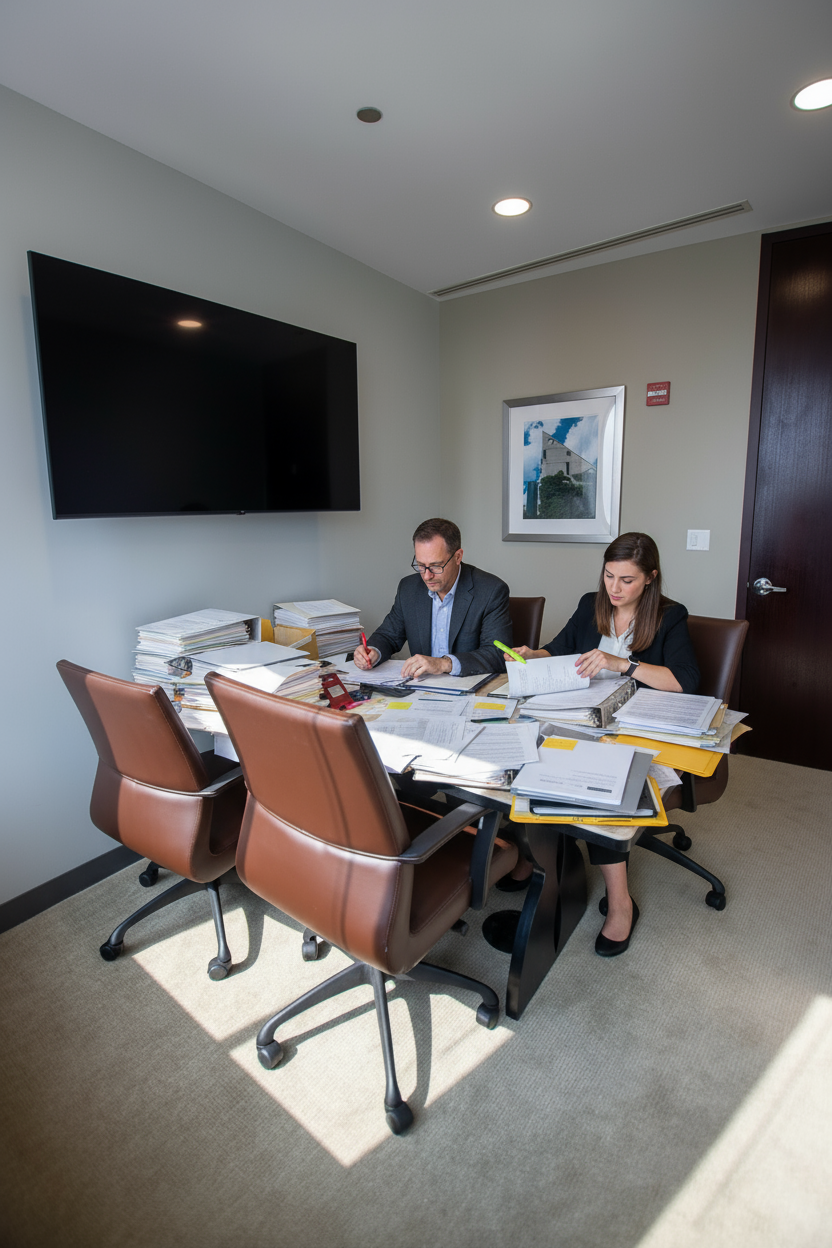How Forensic Accounting Supports Corporate Governance
What is Forensic Accounting?
Forensic accounting is a specialized branch of accounting that combines investigative skills with financial expertise to uncover irregularities, fraud, and misconduct within an organization. Unlike traditional accounting, which focuses on recording and reporting financial transactions, forensic accounting delves deeper into the analysis of financial data to detect anomalies and provide evidence for legal or regulatory proceedings. It is often described as the intersection of accounting, auditing, and investigative techniques.
The primary purpose of forensic accounting is to identify, analyze, and resolve financial discrepancies, whether they stem from intentional fraud, errors, or systemic weaknesses. Forensic accountants are often called upon to investigate financial crimes, resolve disputes, and provide expert testimony in court cases. Their work is not limited to uncovering fraud; they also play a proactive role in preventing it by identifying vulnerabilities in financial systems and recommending improvements.
In the context of corporate governance, forensic accounting serves as a critical tool for ensuring transparency, accountability, and ethical practices. By scrutinizing financial records and transactions, forensic accountants help organizations maintain compliance with laws and regulations, safeguard assets, and build trust with stakeholders.
The Role of Forensic Accounting in Corporate Governance
Corporate governance refers to the system of rules, practices, and processes by which a company is directed and controlled. It ensures that organizations operate ethically, transparently, and in the best interests of their stakeholders. Forensic accounting plays a pivotal role in supporting these objectives by acting as a watchdog for financial integrity.
Forensic accountants contribute to corporate governance by:
- Enhancing Transparency: They provide a clear and accurate picture of an organization's financial health, ensuring that stakeholders have access to reliable information.
- Promoting Accountability: By identifying and addressing financial irregularities, forensic accountants hold individuals and departments accountable for their actions.
- Strengthening Ethical Practices: Their investigations deter unethical behavior by creating a culture of accountability and vigilance.
- Mitigating Risks: Forensic accountants identify potential vulnerabilities in financial systems and recommend measures to mitigate risks.
In essence, forensic accounting serves as a safeguard against financial misconduct, ensuring that organizations adhere to high standards of governance and integrity.
Detecting and Preventing Fraud
Fraud is one of the most significant threats to corporate governance, and forensic accountants are at the forefront of combating it. Their expertise allows them to identify fraudulent activities, assess their impact, and implement measures to prevent future occurrences.
Common Types of Fraud in Corporations
Forensic accountants encounter various types of fraud, including:
- Embezzlement: The misappropriation of funds or assets by employees or executives.
- Financial Statement Fraud: Manipulating financial records to present a false picture of an organization's performance.
- Asset Misappropriation: Theft or misuse of company assets, such as inventory, equipment, or intellectual property.
- Corruption: Engaging in bribery, kickbacks, or conflicts of interest to gain an unfair advantage.
By identifying these fraudulent activities, forensic accountants help organizations recover losses, strengthen internal controls, and maintain compliance with corporate governance standards.
Strengthening Internal Controls
Internal controls are the policies and procedures organizations implement to safeguard assets, ensure accurate financial reporting, and promote operational efficiency. Forensic accounting plays a crucial role in designing, evaluating, and improving these controls.
Forensic accountants assess the effectiveness of existing internal controls by:
- Conducting risk assessments to identify vulnerabilities.
- Testing the reliability of financial systems and processes.
- Recommending improvements to address weaknesses and prevent fraud.
For example, a forensic accountant might identify a lack of segregation of duties in a company's accounting department, which could lead to unauthorized transactions. By recommending changes, such as assigning separate roles for approving and recording transactions, they help mitigate risks and enhance governance frameworks.
Supporting Regulatory Compliance
In an era of increasing regulatory scrutiny, organizations must adhere to a complex web of laws and standards. Non-compliance can result in severe penalties, reputational damage, and loss of stakeholder trust. Forensic accountants play a vital role in ensuring regulatory compliance by:
- Monitoring adherence to financial reporting standards, such as GAAP or IFRS.
- Conducting audits to verify compliance with tax laws, anti-money laundering regulations, and industry-specific requirements.
- Providing documentation and evidence to regulatory authorities during investigations.
Their work not only reduces the risk of legal and financial repercussions but also reinforces an organization's commitment to ethical practices and good governance.
Investigating Financial Misconduct
When financial misconduct occurs, forensic accountants are often called upon to investigate and provide evidence for legal proceedings. Their investigations are thorough, methodical, and designed to uncover the truth.
Case Studies: Real-World Applications
One notable example is the Enron scandal, where forensic accountants played a critical role in uncovering fraudulent accounting practices that led to the company's collapse. By analyzing complex financial transactions and off-balance-sheet entities, they provided evidence that was instrumental in prosecuting those responsible.
Another example is the investigation into Bernie Madoff's Ponzi scheme, where forensic accountants traced the flow of funds and identified the extent of the fraud, helping victims recover a portion of their losses.
These cases highlight the importance of forensic accounting in addressing financial misconduct and improving corporate governance.
Enhancing Stakeholder Confidence
Stakeholders, including investors, employees, and customers, rely on organizations to operate transparently and ethically. Forensic accounting fosters trust by ensuring financial integrity and accountability.
When stakeholders see that an organization is proactive in detecting and preventing fraud, they are more likely to have confidence in its leadership and operations. This trust is essential for attracting investment, retaining talent, and maintaining a positive reputation in the marketplace.
The Future of Forensic Accounting in Corporate Governance
As technology continues to evolve, so does the field of forensic accounting. Emerging trends are reshaping the way forensic accountants operate and enhancing their ability to support corporate governance.
The Role of AI and Automation
Artificial intelligence (AI) and automation are transforming forensic accounting by:
- Streamlining Data Analysis: AI-powered tools can analyze vast amounts of financial data quickly and accurately, identifying patterns and anomalies that may indicate fraud.
- Enhancing Predictive Capabilities: Machine learning algorithms can predict potential risks and vulnerabilities, allowing organizations to take preventive measures.
- Improving Efficiency: Automation reduces the time and effort required for routine tasks, enabling forensic accountants to focus on complex investigations.
These advancements not only improve the efficiency of forensic accounting processes but also strengthen its role in corporate governance.
Conclusion: The Indispensable Link Between Forensic Accounting and Governance
Forensic accounting is an indispensable tool for supporting robust corporate governance. By detecting and preventing fraud, strengthening internal controls, ensuring regulatory compliance, and fostering stakeholder confidence, forensic accountants play a vital role in safeguarding organizational integrity. As technology continues to advance, their contributions will become even more critical in navigating the complexities of modern corporate governance.
Contact Turning Numbers to discuss your case today.




